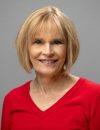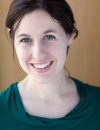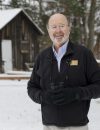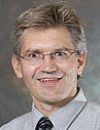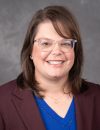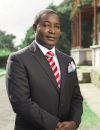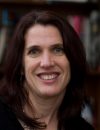UW In The News
-
Women who inspire: Culturists breaking through during Covid-19
In the early days of the pandemic, Malia Jones wrote an informative letter about coronavirus to her friends and family, including tips like “wash your hands” and “don’t pick your nose.” The letter went viral, getting over one million views on USA Today and earning her an appearance on “Dr. Phil.” Jones, a social epidemiologist at the University of Wisconsin-Madison who studies how infectious diseases spread through populations, was suddenly in high demand to explain the science of outbreaks on a level that the general public could understand.
-
From coronavirus to race to the economy, Wisconsin is a microcosm of the forces roiling America
“In the more rural parts of Wisconsin, you drive by taverns and other meeting spots and they’re just packed on a Friday night,” said Katherine Cramer, a politics professor at the University of Wisconsin at Madison.
-
Pennsylvania poll shows Biden holding solid lead over Trump as Election Day nears
Biden has support from 52% of likely Pennsylvania voters, compared to 44% for Trump, according to the survey from the University of Wisconsin-Madison.
-
Are Asian Americans the Last Undecided Voters?
Conversations during the summer were wary, and often explosive. Yang Sao Xiong, a professor of social work and Asian American studies at the University of Wisconsin-Madison, who studies Hmong American political participation, observed that Hmong Americans sometimes have an “uneasy” relationship to the broader category of Asian American. Their higher rates of poverty are often invoked as a “negative test case” to disprove the model-minority myth, he explained, “and that’s the only time they enter into the Asian American conversation.”
-
Voter turnout 2020: How many people voted in 2016, past US elections
But trends changed in the mid-19th century, when the U.S. began to see “astronomical” turnout, said Barry Burden, a political science professor and director of the Elections Research Center at the University of Wisconsin-Madison.
-
2020 election: Kenosha shows why last-minute shake-up is unlikely to help Trump
“There are very few people who haven’t already made up their minds,” explained Katherine Cramer, the author of the 2016 book “The Politics of Resentment” and a researcher at the University of Wisconsin-Madison.
-
Can Trump Win The Election? Yes. But the Path to 270 Is Difficult.
Some analysts have suggested he pour resources into Wisconsin, which began in-person early voting on Tuesday. “It’s quite a challenge for him,” said Katherine J. Cramer, a political scientist at the University of Wisconsin-Madison. “It seems like Biden is really holding his own here.”
-
Stimulus Spending, and Lots of It, Is the Only Way for Next President to Fix the Ailing Economy, Experts Say
Fenaba Addo Economist, Associate ProfessorUniversity of Wisconsin-Madison
The next president should extend and expand help for the 43 million current and former college and graduate students who collectively are on the hook for more than $1.7 trillion in higher education debt, says Addo.
-
Voting violence feared as Trump calls for poll watchers, often illegal
Intimidation at polling places by armed groups has the potential to be a serious problem in places like the Midwest, said Kenneth Mayer, a political science professor at the University of Wisconsin-Madison. A private security firm has been recruiting former special operations troops to patrol polling sites on election day in Minnesota, the Washington Post has reported. Though the law varies by state, any poll watchers typically have to be certified in advance or it is illegal.
-
Heat, strong winds heighten California wildfire danger
“Transmission lines transport a large amount of power, and if several such lines are turned off you can really start to see large-scale power shut-offs,” said Line Roald, an assistant professor of electrical and computer engineering at the University of Wisconsin at Madison.
-
Doctor On Wisconsin Hospital Preparation Amid Coronavirus Surge
NPR’s Ailsa Chang talks with Nasia Safdar, medical director of infection control and protection at the University of Wisconsin Hospital and Clinics, about a spike in coronavirus cases in Wisconsin.
-
4 key battleground states reporting record-high coronavirus cases weeks from Election Day –
Ajay K. Sethi, an associate professor in population health sciences at the University of Wisconsin, told ABC News that the state has put in place strict restrictions to make sure voters are safe.
“Since previous COVID cases were tied to polling locations during the April spring election, there certainly is awareness and concern for additional spread of the virus on Election Day,” said Sethi. “Election officials are preparing to operate polling places safely, and a record number of Wisconsinites have voted already, so I am hopeful that Election Day will not add more fuel to the fire.”
-
Disney Adds Warnings for Racist Stereotypes to Some Older Films
Hemant Shah, a professor at the University of Wisconsin-Madison who studies portrayals of race and ethnicity in film and media, said that if white children consumed content with racist portrayals that went unchecked, it could “normalize the stereotype” for them and make it “normal for them not to call out stereotypes or racist behaviors they see in their lives.”
-
Why New Dads Struggle With Depression – Male Postpartum Depression
There have been some appeals by experts over the years to take paternal PPD seriously, but those calls have been largely ignored. In January, three leading researchers, Tova Walsh, Ph.D., Neal Davis, M.D., and Craig Garfield, M.D., published a piece in Pediatrics—the influential journal of the American Academy of Pediatrics—urging pediatricians to screen for paternal PPD, just as they do for maternal postpartum depression. “It is now critical to recognize paternal depression as a community of pediatric providers and ensure consistent screening, referral, and follow-up,” they wrote.
-
Covid-19 Cases Are Rising in More Than 40 States
“This just makes me feel that the winter will be more ominous. I don’t think it’s going to go down. It could, we have the time for it to go down,” said Ajay Sethi, an associate professor of population health sciences at the University of Wisconsin, Madison. “But you really need to have a sudden and complete change in behavior across the state, and it’s hard to believe it will occur.”
-
Wisconsin Judge Temporarily Blocks State Order on Taverns as New Covid-19 Cases Hit Record
Howard Schweber, a political-science professor at the University of Wisconsin, Madison, said the conflicts in all three states reflect the intense partisan divide, with Democratic governors and one or both houses of the legislative branch controlled by Republicans.
“What we have is just a sort of state-level version of what is sometimes called constitutional hardball,” he said. “Parties pushing the rules of the game and their interests to the extreme that the system will allow, which would be unfortunate if we were talking about, say, fiscal policy, but in the case of a genuine public-health crisis, is truly disastrous.”
-
Voter turnout: Will sports stadiums as voting sites boost the vote?
“I think it’s a combination of widespread national interest in racial justice and the pandemic happening simultaneously [driving engagement]—and the fact that these arenas aren’t actually being used for sports [that] makes them available,” said Barry Burden, a political science professor at the University of Wisconsin-Madison and founding director of its Elections Research Center. “So it’s sort of a perfect storm of all these things coming together that’s made it sort of a natural extension for teams to make.”
-
Trump and Biden in competing town halls with president facing uphill battle
David Canon, chair of the political science department at the University of Wisconsin-Madison, agreed.But he said Trump may have committed a “tactical error” by backing out of a virtual debate with Biden.“He needed the debates more than Biden did,” Canon said. “He’s the one that needs to change the momentum in the election.”
-
Wild Predators Are Relying More on Our Food
A new study from researchers at the University of Wisconsin-Madison and the University of New Mexico used hair, fur, and bone samples to identify the diets of seven carnivore species across the Upper Midwest, from the outskirts of Albany, New York, to remote Minnesota forestland. The scientists used chemical tracers to show that the animals were relying on human food sources either directly, such as by raiding fields or trash bins, or indirectly by preying on smaller animals that do, such as mice, rabbits, or sometimes even pets.
-
How coronavirus’s genetic code can help control outbreaks
“It’s still kind of like a volunteer fire department,” said Tom Friedrich, a virologist at the University of Wisconsin-Madison and a member of the consortium. “Labs that already have the interest and capacity are sequencing, but that leaves other places lacking in coverage.”
Some of the biggest gaps are in places where outbreaks are most out of control, noted Friedrich’s University of Wisconsin colleague Dave O’Connor. “It is sort of like a street only being illuminated where there happen to be streetlights,” he said. “You can’t know anything about the areas that are dark.”
-
How To Trick-Or-Treat Safely During A Pandemic, According To An Epidemiologist
But that doesn’t mean you can’t celebrate Halloween safely this year. University of Wisconsin-Madison Epidemiologist Malia Jones answers your questions — and offers some creative alternatives to enjoying the spooky season.
-
Spinoza: A Heretical and Modern Mind
The standard biography of the man is the fascinating “Spinoza: A Life,” by Steven Nadler, a philosophy professor at the University of Wisconsin. A revised edition of this much-admired book has recently appeared.
-
Enrollment drops worry public schools as pandemic persists
More affluent families may have chosen private schools or homeschooling because they did not like the pre-packaged curricula that many public school systems are using for online learning, and they are unlikely to return to public schools any time soon, University of Wisconsin education professor Michael Apple said.
-
Is It Possible to Party Safely at Dance Events During the Coronavirus Pandemic?
According to Dr. Ajay K. Sethi, associate professor of population health sciences at the University of Wisconsin, the testing protocol at In My Elements was solid, though not entirely fail-safe. “Multiple rounds are better than a one-time test at the time of admission,” Sethi says. “The PCR test result indicates that virus was not detected on the day that testing was performed. If someone was exposed and infected the day before PCR testing, then the test may miss detection of the virus.”
-
Rubella virus: Wisconsin, German researchers discover 2 new relatives
A team of researchers, including two from the University of Wisconsin-Madison, has solved a long-running biological mystery, reporting the discovery of the first two viral relatives of rubella, also known as German Measles.
-
Rejected mail in ballots projected to be major factor in 2020 election
“I think any rejected ballot is a travesty. We don’t want any legitimate voter to have their ballot go uncounted because of an administrative mishap, a missing signature, a slow mail delivery,” said Barry Burden, a political science professor at the University of Wisconsin-Madison who analyzed Wisconsin absentee data.
-
Newly discovered viruses suggest ‘German measles’ jumped from animals to humans
The findings strongly suggest that at some point in the past, a similar virus jumped from animals to humans, giving rise to today’s rubella virus, the researchers say. Although neither of the new viruses is known to infect humans, the fact that a related virus jumped species raises concerns that the two viruses or other, as-yet-unknown relatives could cause human outbreaks. “We would be remiss not to be concerned, given what’s going on in the world today,” says epidemiologist Tony Goldberg of the University of Wisconsin, Madison, a senior author of the study.
-
Some medical experts question Trump’s exit from Walter Reed hospital
Dr. William Hartman, who is leading several Covid-19 clinical trials at University of Wisconsin Health in Madison, said it is unusual for patients to go home before they have finished their IV medications. But “the White House is a different situation, obviously,” Hartman said. “He can get that type of care there.”
-
Trump Walter Reed visit raises questions about White House spin
But the stroke was not made public while Wilson remained in office. Neither was a urinary infection that “nearly killed him,” according to John Milton Cooper, professor emeritus at the University of Wisconsin-Madison who wrote “Woodrow Wilson: A Biography.
-
Hidden in Plain Sight: Has Evidence for Life on Venus Been in Our Grasp for 40 Years?
Other archived data could prove useful, too. Sousa-Silva is currently looking through old infrared telescope observations of Venus, hunting for additional overlooked evidence of phosphine. And Sanjay Limaye of the University of Wisconsin–Madison, who is a co-author of Mogul’s preprint paper, says old data from the Soviet Venera probes—while unlikely to have been sensitive enough to detect phosphine—may contain evidence for atomic phosphorus, which could hint at the presence of molecular phosphine, too. He notes, however, that the whereabouts of much of those data is unknown. Still, Limaye says, “somebody probably has some records.”
- Newer stories
- Page 51 of 140
- Older stories
Featured Experts
Kathleen Glass: Food safety
Food is an integral part of Thanksgiving. And who doesn't love leftovers? But after how long should you leave those… More
Cecelia Klingele: Body-worn cameras by police
Madison Police Chief Shon Barnes is requesting that the city fund widespread use of body cameras for officers in the… More
Stanley Temple: Fall phenology
The days have finally started getting cooler and we all know winter awaits. Stanley Temple, an expert on birds, wildlife, endangered… More
Jonathan Temte: The seasonal flu shot
Family medicine professor Jonathan Temte is available to discuss this year's updated seasonal flu shot and flu prevention and control. More
Noelle LoConte: Pancreatic Cancer Awareness Month
Pancreatic cancer is one of the most difficult cancers to prevent, diagnose or treat. Earlier this month, music legend Quincy… More
Alvin Thomas: Movember and Men's Health Month
You might see more facial hair this month as Movember goes into full effect, drawing awareness toward men's health. Alvin… More
Dominique Brossard: Vaccine hesitancy
With a new administration poised to take power in January, a change in policy regarding vaccines may also be on the way.… More

